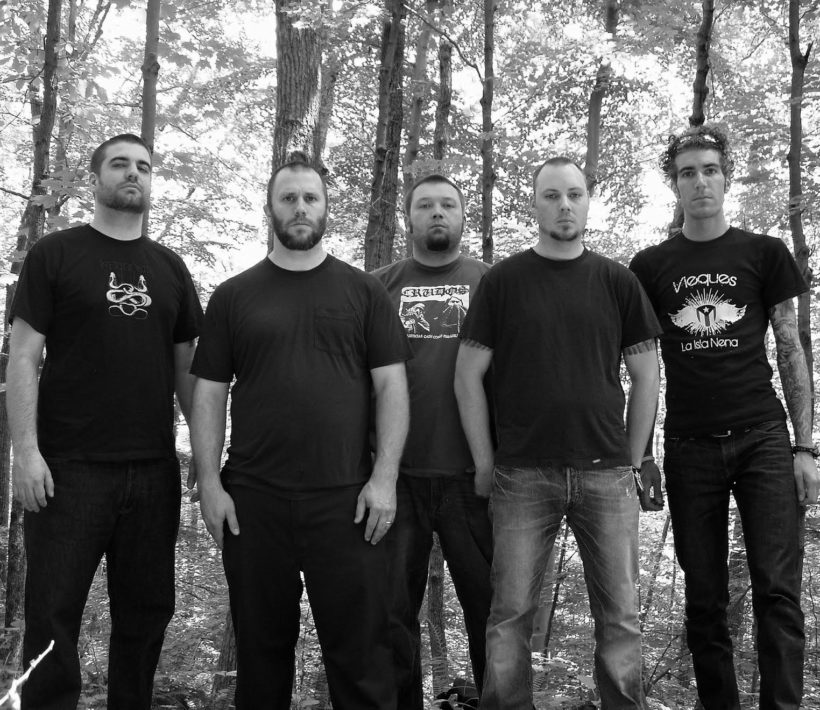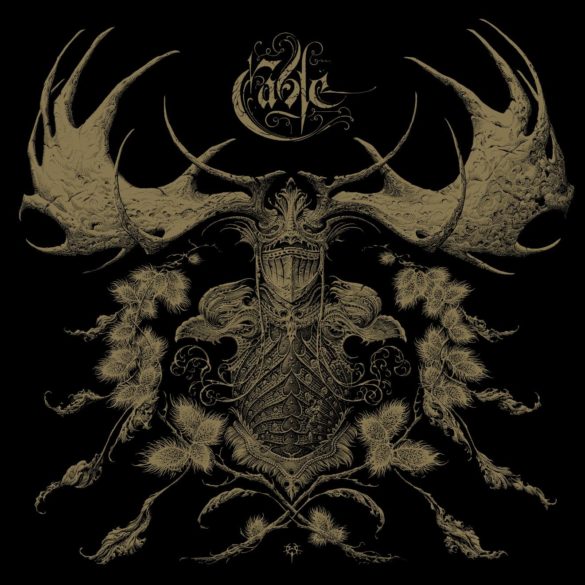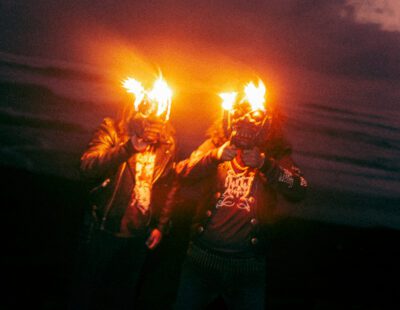
On noisy, metal-infused hardcore-punk opuses such as Variable Speed Drive and — especially — Gutter Queen, Connecticut underground heroes Cable defied convention en route to pioneering and perfecting sounds that became a major part of the heavy music vernacular.
“To be honest, I’m not,” bassist/vocalist Randy Larsen replies when Decibel asks whether he’s aware of Cable’s enduring and growing influence. “We’ve only played one show since 2011 so I don’t really know if there is a new generation of heavy music fans discovering the band or not. That would be cool and maybe this reissue will tell part of that story. I think early on we decided to do our own thing our own way and not get caught in the trappings of any particular musical style or scene. Those things can be so limiting. Having said that, I think that also alienated many early fans of the band. It would be nice to be acknowledged for our continuation in the heavy music scene for the last twenty-plus years. But, really, that’s not why I do this band, so it doesn’t really matter to me either way. It’s nice when people dig what you do but selfishly I’ve always done this more for me than anyone else.”
Now Cable — taking one of its periodic and extremely welcome steps out of the shadows — reissues a brilliantly revamped, transformative version of its almost completely overlooked 2003 album Never Trust a Gemini — out Friday via Translation Loss.
Check out a full stream of the record below as well as a in-depth interview with Larsen concerning its creation and resurrection.
So while chatting with Decibel about It Cost Me Everything 1994-1995 last year you teased more Cable reissues were in the works, but I have to say I was surprised to learn Never Trust a Gemini was among them. After diving in, though, I see it as an inspired choice — even as a serious devotee of Cable this record never wound up on my radar and it’s definitely a wonderful and under-appreciated entry in the canon. How did the idea to revisit this record originate/percolate?
So the idea of doing a Never Trust A Gemini has been in our minds for years. The original execution of the record was not what we hoped for. The record wasn’t properly distributed and the band broke up before its release. The artwork was not what we expected and the overall production of the record was a disappointment for many reasons. When we got the chance to work with Translation Loss Records on this reissue we jumped at the chance. I finally feel out initial vision of Never Trust A Gemini is complete. Alex Garcia Rivera did a masterful job with the remix and Aaron Horkey’s art contribution just put it over the top.
From an outside perspective, the chaos and churn of the early years of Cable seemed to serve the band — there were all these lineup changes and yet the records only became more brilliant and envelope pushing. Is the original version of Gemini an example of “bad chaos” catching up with the band?
Well, you’re correct in saying there has always been an underlying chaos in Cable. We’ve made some bad choices over the years and in retrospect I would do a lot of things differently today. But it is what it is. The chaos did end up being part of the creative process in Cable without a doubt though. Up until this Gemini reissue I do think the chaos of the band was not a good thing for a series of records including Gemini, Skyhorse Jams (2001), and Pigs Never Fly (2004). Those three records in particular I think suffered from the inner turmoil and bad choices within the band. I’m not proud of those records and can’t stand by them. Having the chance to make Gemini right was a great thing for me. I’m not sure we can or will get the chance to do that with the other two records.
Tell me a little about the writing process for the record. Skyhorse Jams had scrambled the DNA a bit and you brought vocalist Peter Farris onboard — which demonstrates an admirable willingness to never rest on past innovations/accomplishments.
We brought a second guitarist into the mix on Skyhorse after doing the previous two albums as a trio. I purposely wanted to push Skyhorse in a more traditional rock sound while still keeping the noisy/brutal elements of the band intact. I think to some degree we achieved that but like the original version of Gemini I wasn’t happy with the final outcome. That’s when we brought Peter Farris in. We had been friends with Peter and played with his old band a few times. I loved what he did and he had a brutal voice. Only after talking with him more did I realize he could actually sing as well. We shared many musical influences and he shared in the vision I had moving forward for Cable. He came down and tried out and after one practice we all decided he was exactly what we where looking for to move forward with the next phase of Cable. I think his vocal and lyrical contributions to Gemini are some of the best stuff the band has ever done. He’s been with us ever since.

Is there a song on here that you feel helps tell the musical story of Cable — either to yourself or to the uninitiated?
“Battle of the Asses” is a song that I feel captured the essence of what I wanted with Gemini. I also love “Coming Up Spades Part 1.” I feel those two songs are the center pieces of the album. I absolutely love what Peter did vocally on that song.
At what point in the process did you begin to realize your vision for the original Gemini wasn’t exactly being fulfilled?
It didn’t take long to realize sonically the original version was not good. It was a major bummer but we had exhausted our budget at that point and just had to live with it. As far as the art and visual part of the process we didn’t even see that until we got our copies much further down the line and the band had already split. We all thought the final product looked and sounded awful. It was a huge disappointment at the time but we just let it ride because at the time we all felt like the band was over anyway. Thankfully that version didn’t really get out there much. Which in hindsight is a blessing.
In the long and winding journey of Cable, how important was the Gemini moment?
In the journey of the band Gemini wasn’t a important moment at all back when it originally came out. It was actually an afterthought. To be able to go back and make things right with the record has been amazing and now I look at it as one of the bands high water marks and a very important part of the bands legacy.
On a related note, in our conversation last year and this one, you seem very at ease and almost philosophical discussing the Cable experience. Is it fun/gratifying to revisit this material and continue to move the band forward deep into adulthood, taking advantage of the benefits the rearview mirror and adulthood can bestow?
I’m very at ease with the band now. I’m 46 years old now and fully realize what the band is. This isn’t how I make a living. It is a vehicle for creativity and helps to keep me from falling off the edge of the world — to quote the late great Ronnie James Dio. I understand the limitations of Cable. We don’t tour and haven’t released any new material in almost ten years. It’s been a while but the wheels haven’t stopped turning either.
I asked you last year and you were fairly cagey, but I gotta do it again — are we on the verge of seeing a more active Cable?
Yes. I’ll leave it at that for now. The snakes are moving through the night.
Almost a quarter century in, what has Cable meant to you personally in the context of your life? Can you imagine who you’d be without it?
It’s tough to put that into words. I wouldn’t be the same person for sure without the experiences I’ve had in Cable. I’m not sure if that’s a good or bad thing but it’s is what it is. Without a may be a better person , I may not. I may be dead without that vehicle to move my negative thoughts and emotions around. In some ways it cost me everything….but I’m still fighting the hard roads and taking the ride.
Re-envisioned artwork by Aaron Horkey. Promo photo by Bernie Romanowski.







